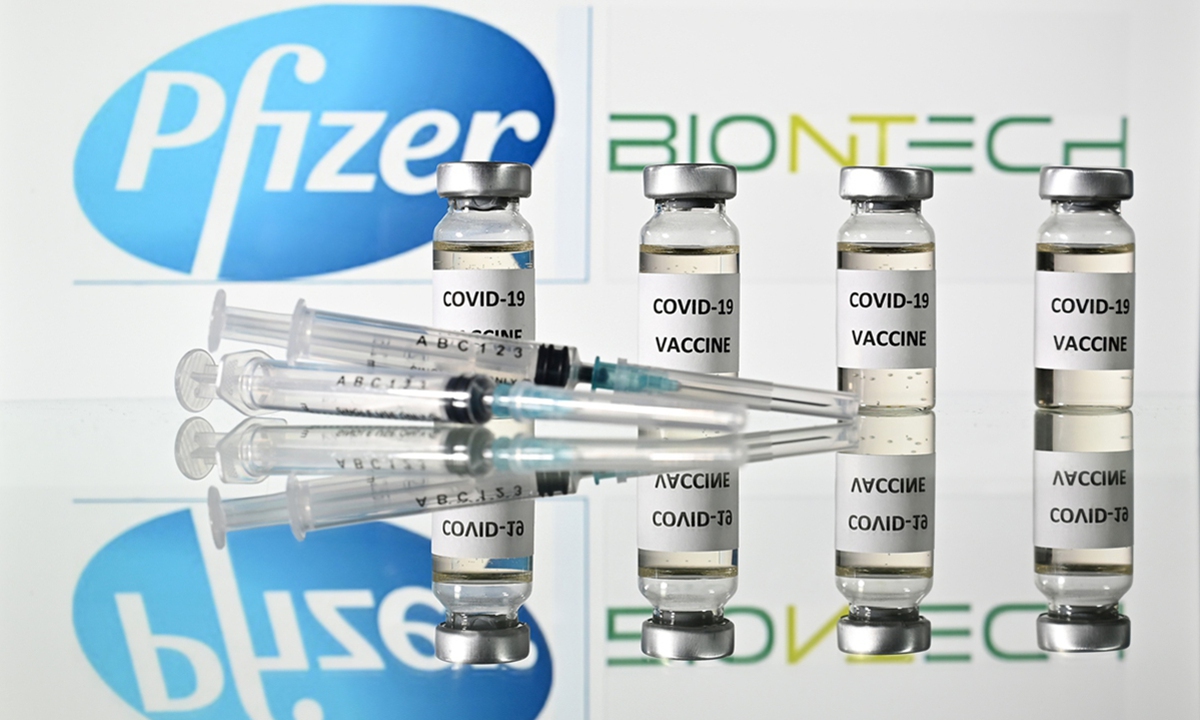
An illustration shows vials of a COVID-19 vaccine and syringes with the logos of US pharmaceutical company Pfizer and German partner BioNTech. Photo: AFP
Pharma giant Pfizer tried to ease concerns in Europe about deliveries of its coronavirus vaccine as nations across the world doubled down on restrictions to fight the rampaging pandemic.
The coronavirus pandemic is showing no signs of slowing down, with infections surging past 94 million and more than 2 million deaths, and Europe being among the hardest-hit parts of the world.
Worries have grown that delays in the delivery of Pfizer-BioNTech shots could hamper a European vaccine rollout which has already faced heavy criticism across the continent.
Twenty-three people died in Norway within days of receiving their first dose of the Pfizer vaccine, with 13 of those deaths - all nursing home patients and at least 80 years old - apparently related to the side effects of the shots, health officials said.
Work is ongoing at the Pfizer plant in Belgium to increase capacity, and the firm and its German partner BioNTech said Saturday it would allow them to "significantly" scale up vaccine production in the second quarter.
Deliveries would be back to the original schedule to the EU from January 25, they pledged.
Several Nordic and Baltic countries have described the situation as "unacceptable," while Belgium's vaccination strategy task force condemned a lack of consultation by Pfizer over the deliveries as "incomprehensible."
France, which crossed 70,000 COVID-19 deaths on the weekend, is set to begin a campaign to inoculate people over 75 from Monday. Russia plans to begin mass vaccinations the same day.
Despite the rollout of vaccines, countries still have few options but to rely on movement and distancing restrictions to control the spread of the virus.
Curbs will be tightened in Italy and Switzerland from Monday, while Britain will require testing of all international arrivals.
The number of infections in the US - the worst-hit country - soared to more than 23.7 million on Saturday, with close to 400,000 deaths, according to a Johns Hopkins University tally.
